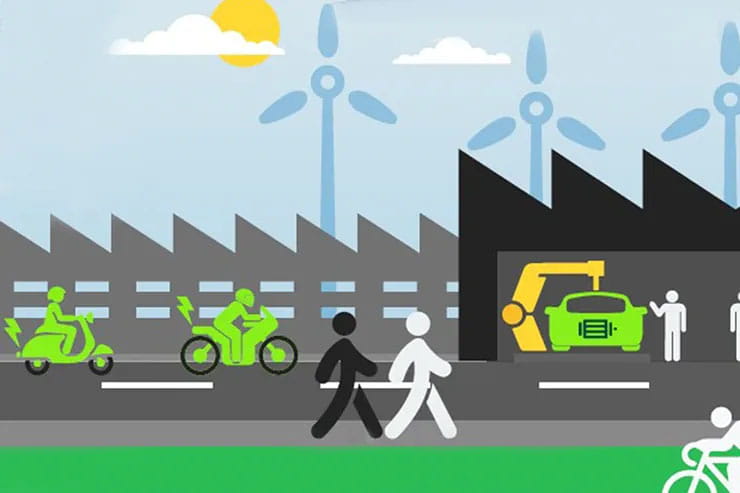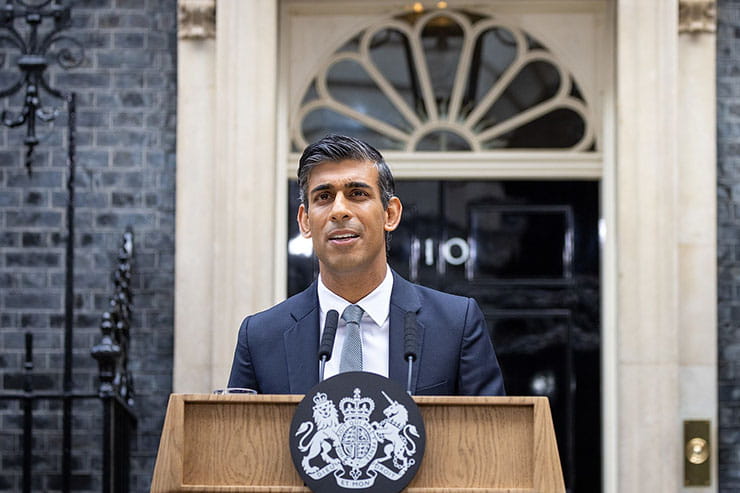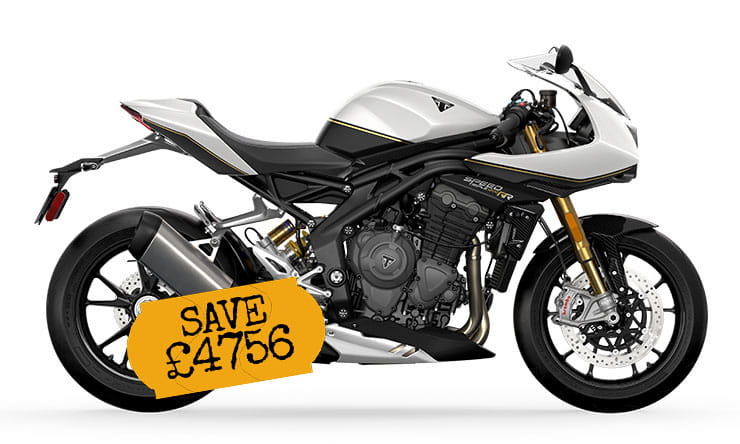In July last year the Government – still led by Boris Johnson at the time – announced proposals to end the sale of all non-zero emissions motorcycles by 2035 and smaller bikes by 2030 and opened a consultation into the idea with the intention of pushing forward with the plan. Now the chances of its implementation in anything like that form appear to be left in tatters following a monumental shift in similar plans related to cars.
Despite being barely 12 months on from that original consultation, which closed in September 2022, we’ve had two different Prime Ministers since then and the current incumbent, Rishi Sunak, has decided to rethink plans pursuing ‘net zero’ and push back the implementation date for a ban on fossil fuel-burning cars by five years. Under the previous schedule, purely fossil-fuelled cars were to be taken off the market in 2030, with just a handful of hybrid models allowed to remain on the market until a complete end of ‘non-zero emissions’ car sales by 2035.
Now that date has been pushed back by at least five years, with Sunak saying in a Downing Street speech “And we need to strengthen our own auto industry, so we aren’t reliant on heavily subsidised, carbon intensive imports, from countries like China. So, to give us more time to prepare, I’m announcing today that we’re going to ease the transition to electric vehicles. You’ll still be able to buy petrol and diesel cars and vans until 2035.”
Given that the Government had already accepted that electrifying motorcycles is a tougher job than creating battery-powered cars and proposed a switchover date five years after the four-wheeled equivalent, it’s all but certain that the existing proposals for a 2035 end to combustion engine bike sales will not be adopted into law in the foreseeable future.
With a General Election due no later than January 2025 – and likely to be sooner than that – and polling showing Labour with a vast lead over the Conservatives, whatever the final decision is on how to tackle carbon emissions from motorcycles may well be out of the hands of those currently in power.
The proposals to end the sale of petrol-powered bikes set the UK apart from the rest of the world; there aren’t similar plans elsewhere as motorcycle remain a tiny contributor to global emissions, and our motorcycle market isn’t big enough to force major manufacturers to accelerate their R&D into electric bikes – a potentially ruinous situation for the UK motorcycle industry and for riders here. In his speech, Sunak said: “We’re aligning our approach with countries like Germany, France, Spain, Italy, Australia, Canada, Sweden, and US states such as California, New York and Massachusetts and still ahead of the rest of America and other countries like New Zealand” – suggesting there’s a new intention to be in step with others rather than taking the risk of leading the way.
The motorcycle industry in the UK had already met with the DfT this year to call for common sense on the proposed ban, and Sunak’s rethink has been welcomed. National Motorcycle Council Executive Director Craig Carey-Clinch said: “News of the Prime Minister's rethink on net zero is very welcome. We look forward to common sense decisions which brings the UK into line with international developments in respect of decarbonisation. The NMC has long advocated that a sensible and pragmatic approach needs to be taken to motorcycle decarbonisation, working with international partners and supporting the development of a range of alternative technologies and fuels. We look forward to working with Ministers and officials on a new approach, which develops sustainable and realistic options that fully support the 2050 net zero target.”
Sunak’s speech didn’t mention motorcycles specifically but he pointed out that even without deadlines and legislation there’s a shift towards electric cars as the technology behind them matures. He said: “I expect that by 2030, the vast majority of cars sold will be electric. Why? Because the costs are reducing; the range is improving; the charging infrastructure is growing.”
The same pragmatism is likely to be the only viable solution when it comes to electrifying motorcycles. Current battery technology simply isn’t close to having the energy-density required to achieve the power-to-weight ratios that even modest combustion engine bikes enjoy. Unlike cars, there isn’t the space to simply add more batteries to overcome the problem. In time, batteries are expected to improve – over decades, energy-density has got better between 5% and 8% per year. That might not seem much, but at the higher end of the scale it means batteries could be three times as energy-dense as today’s best within about 15 years. At that stage, still well before the net-zero target of 2050, an electric superbike with weight, price and range to compete with combustion engines would be genuinely viable – making the whole issue of a ban a moot point. Because once electric bikes are better than petrol ones then people will choose them without any need for legislation.
If you’d like to chat about this article or anything else biking related, join us and thousands of other riders at the Bennetts BikeSocial Facebook page.





.ashx?h=493&w=740&la=en&hash=E5BC65EC575D5A1A1DFEFC07EBB767FB1D154FC3)


